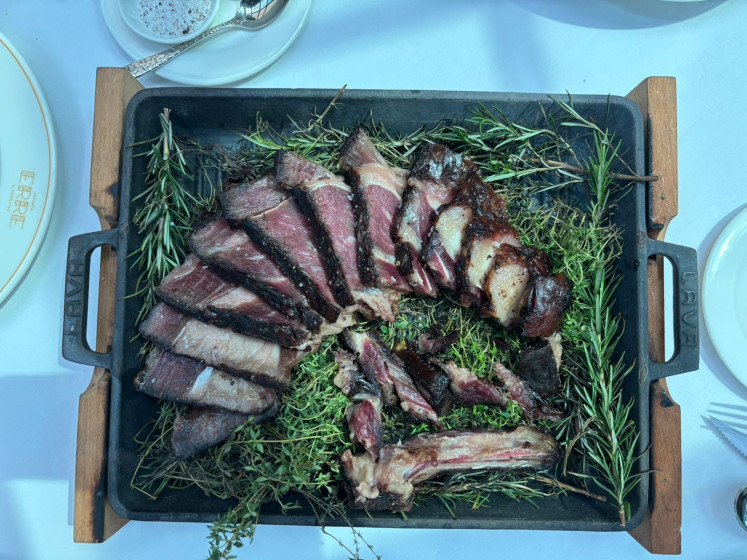Popular Reads
Top Results
Can't find what you're looking for?
View all search resultsPopular Reads
Top Results
Can't find what you're looking for?
View all search resultsBali’s trash heroes struggle to make ends meet amid pandemic
Garbage pickers in Bali are struggling to make ends meet, with one woman saying her daily income had dropped from Rp 50,000 to 15,000.
Change text size
Gift Premium Articles
to Anyone
The global COVID-19 pandemic has affected people of all ages and from all walks of life, including scavengers in Bali.
In a mini documentary produced by Make a Change World, a media organization that shares inspirational content about sustainability, trash picker Niwarti explains that her daily income fell from Rp 50,000 (US$3.41) to around Rp 15,000.
“That’s barely enough to eat,” she says in the documentary.
With that in mind, Make a Change World teamed up with Danone-AQUA and Octopus Indonesia, a local startup that focuses on empowering scavengers, to help Bali’s trash heroes.
“When we learned about how [the scavengers'] livelihoods had been affected by COVID-19 and how oil prices [have] dropped, we knew we needed to help them out and bring their story out to the world,” said filmmaker Gary Bencheghib about the collaboration.
Bencheghib said there were more than 3.7 million scavengers in Indonesia, who searched for hidden treasures in open dump landfills, working day in and day out to keep the environment clean.
“They collect 1 million tons of plastic waste per year. If it was not for them, the country would be in a very different state,” he said.
Read also: Skyscraper of waste: Greater Jakarta drowning in mountains of trash
Amid the outbreak, Bencheghib said the job of scavengers had only gotten harder.
“Most waste pickers who are still out on the streets are forced to work to ensure food security for their families. They are doing so by spending more hours out on the streets, but only getting a fraction of what they used to before the pandemic,” he explained, “With oil prices dropping globally, it has led to a significant decrease in the value of plastics and the demand for recycling.”
With the partnership, both Danone-AQUA and Octopus Indonesia have been distributing health aid and basic food packages to scavengers. "Through this partnership, both groups are doing important work on the ground using Danone-Aqua’s distribution models to make sure that as many waste pickers are receiving health benefits and basic food packages amid these difficult times," said Bencheghib.
Octopus Indonesia cofounder Moehammad Ichsan said they also worked with local NGOs to raise funds to help scavengers survive the pandemic in eight cities across Indonesia, namely Jakarta, Surabaya, Yogyakarta, Bandung, Denpasar, Makassar, South Tangerang and Labuan Bajo.
The first fundraising effort managed to raise more than Rp 460 million with donations distributed to 6,039 scavengers in the aforementioned cities.
However, they could only reach around 100 scavengers in Denpasar. Therefore, Octopus Indonesia is raising funds via crowdfunding platform kitabisa.com with the target of raising Rp 50 million to help 500 trash collectors across Bali. (wng)










